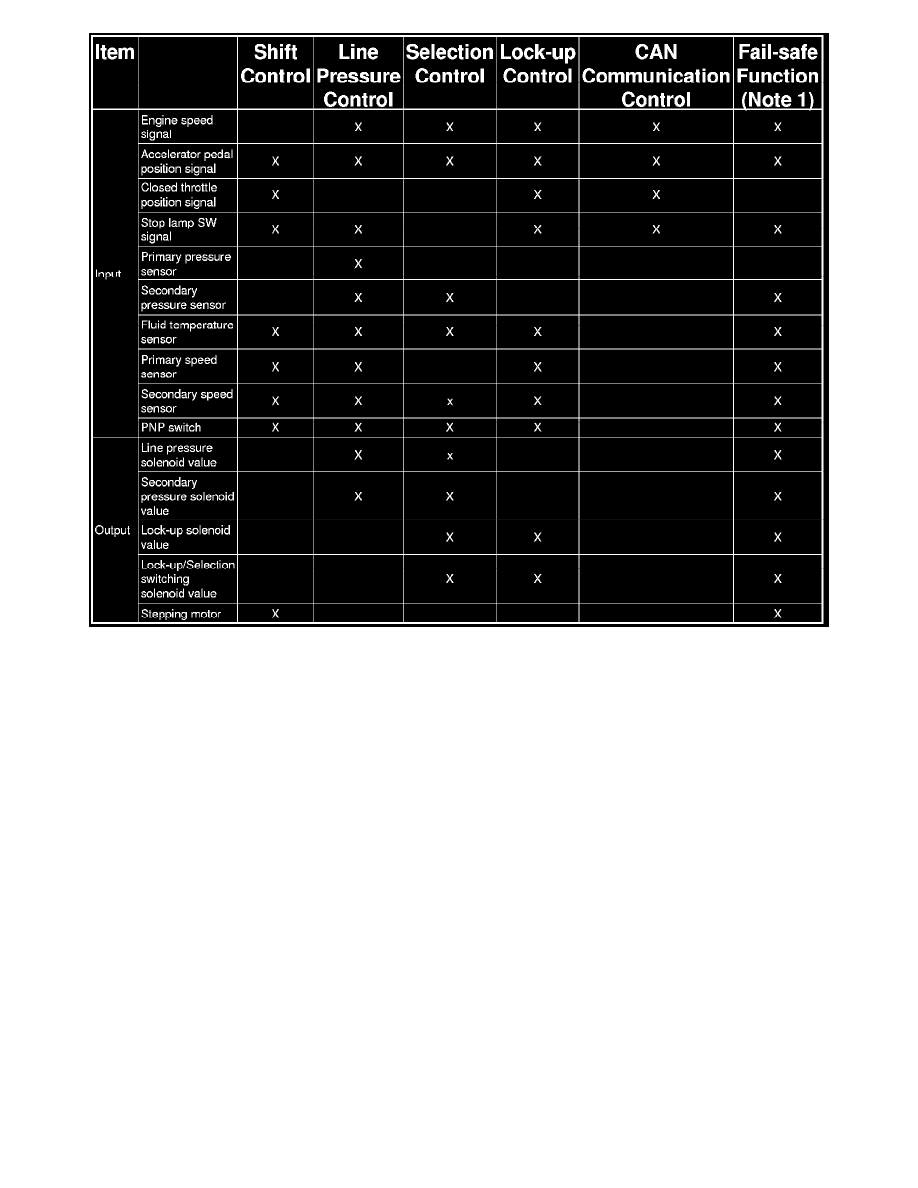Caliber L4-2.4L (2009)

Engine/CVT Integration Control (CAN Communication Control)
In order to improve gearshift feeling and to perform controls such as prevention of engine slowdown, engine power control signals are
intercommunicated between the engine ECM and the TCM, and real-time cooperative controls depending on vehicle driving conditions are performed.
TCM sends information such as fast slowdown signals, lock-up signals, torque down request signals to ECM, while receiving information such as torque
down permission/prohibition signals, lock-up permission/prohibition signals, throttle position from ECM.
Fail-safe Function
If an unexpected signal is sent from any sensor, switch, solenoid etc., this function controls the CVT to make driving as smooth as possible.
Secondary Speed Sensor
The shift pattern is changed in accordance with throttle position when an unexpected signal is sent from the output speed sensor (secondary speed sensor)
to the TCM. The manual mode position or the sports mode position is inhibited, and the transaxle is put in "D".
Primary Speed Sensor
The shift pattern is changed in accordance with throttle position and secondary speed (vehicle speed) when an unexpected signal is sent from the primary
speed sensor to the TCM. The manual mode function or the sports mode function is inhibited, and the transaxle is put in "D".
PNP Switch
If an unexpected signal is sent from the PNP switch to the TCM, the transaxle is put in "D".
Fluid Temperature Sensor
If an unexpected signal is sent from the fluid temperature sensor to the TCM, the gear ratio obtained immediately before receiving the unexpected signal
